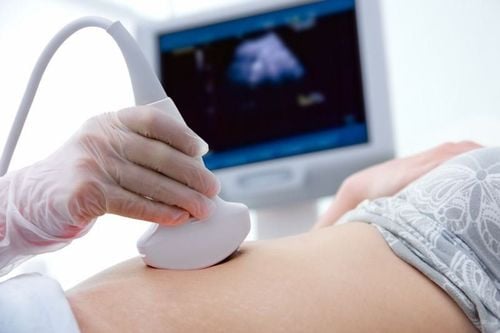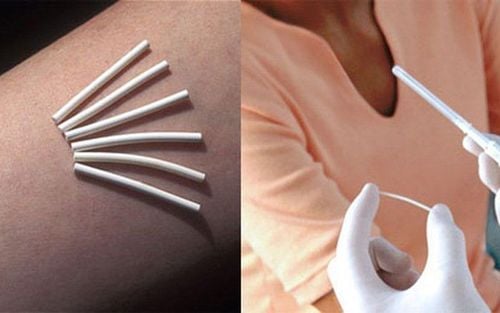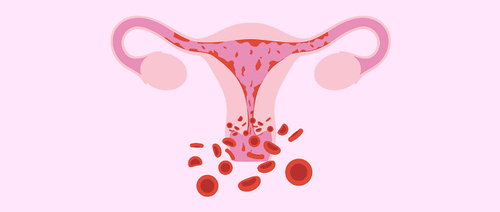This is an automatically translated article.
Using drugs in pregnant women is always advised by doctors to be very cautious, even with drugs that are considered "tonic" because those drugs can adversely affect the pregnancy process, the development of the fetus. , even causing birth defects, stillbirth or miscarriage.The fetus develops from the mother's nutrients through the placenta. The placenta is a special organ that can prevent some harmful substances, however, many substances harmful to the fetus can still pass through the placental barrier easily. Therefore, some drugs should be avoided during pregnancy:
Cardiovascular drugs: If it is a digital drug, although it crosses the placenta slowly, but accumulates more in the fetus than in the mother (2-10 times), it can cause complications. heavy for the fetus. Antihypertensives, including reserpine, cause hypoglycaemia and bradycardia in neonates, increasing the risk of thrombosis. Diuretics used in maternal cardiac disease reduce maternal plasma volume and thrombocytopenia in the neonate.
Respiratory system drugs: Aminophyllin can cause breathing difficulties in infants.
Nervous system drugs: Sleeping and sedative drugs easily cross the placenta, are easy to accumulate, and are difficult to eliminate, which can cause neonatal hemorrhage and thrombocytopenia. Morphine and opiate derivatives can cause fetal death. General anesthetic causes hypoxia to the fetus, sometimes very seriously, causing fetal death, so when the mother has to have surgery, she should find another way to relieve pain (spinal or epidural anesthesia) instead of general anesthesia.
Pregnant women must be careful when taking the drug.
Antibiotics and sulphonamides:
Antibiotics cross the placenta more easily in the fetus than in the fetus. Penicillin crosses the placenta easily, can prevent congenital syphilis to the fetus, but if the fetus is allergic to the drug, it is as life-threatening as when injected into a baby who has been born. Streptomycin can cause congenital deafness if given to the mother in the last months of pregnancy. Chloramphenicol can cause gravid jaundice in neonates. Rifampicin (tuberculosis medicine) increases the risk of bleeding in newborns. Among TB drugs, only INH is the safest drug for the fetus. Tetracyclines can cause a child's tooth enamel to turn yellow later in life. Sulfamides increase the risk of bleeding and jaundice in newborns.
Cancer drugs: Methotrexate has a risk of causing birth defects.
Antimalarials: Primaquine may cause hemolysis and increased methemoglobinemia in neonates. High doses of pyrimethamine and quinine can cause fetal malformations.
Hormonal drugs: Synthetic antithyroid drugs cause mucus edema and hypothyroidism in neonates. Corticosteroids can suppress the neonatal adrenal cortex. Hypoglycaemic sulphonamides administered to the mother also cause hypoglycaemia in the neonate. Androgens cause virilization in female fetuses. The female hormone diethylstinbestrol, formerly used to prevent recurrent miscarriages, has long been abandoned because of its potential for causing vaginal cancer in girls born 9-10 years later.
Non-steroidal anti-inflammatory drugs (NSAIDs) can more than double the risk of first-trimester miscarriage, even in small amounts. The highest risk for this class of drugs is diclofenac, followed by naproxen, celecoxib, ibuprofen and rofecoxib, either alone or in combination. In this group of drugs, paracetamol is considered the safest.
Live vaccines: May cause birth defects.
Vitamins: Many people think that vitamins are tonics, so it's okay to drink a lot, but in fact, there are still harmful effects. First of all, due to the use of many vitamins, the body has a habit of excreting the amount of "excess" vitamins, so when not used anymore, the vitamins in the food eaten enough are also excreted much, causing the body to be deficient. On the other hand, there are types like vitamin D, when used a lot and for a long time, will make the placenta calcified, making the metabolism between the mother's blood and the fetus through the placenta hindered and also causing calcium deposition in the bones and organs. , especially in the fetal kidney. Vitamin C taken a lot will accumulate in the amniotic fluid, vitamin B 12 accumulates in the placenta.
For traditional medicines: According to published documents during pregnancy, many oriental medicines are also not used such as: useful mother, flower flower, rose flower, heroic king, semi-lower, ox sock, humiliation. cinnamon, cross-frame, regulation, tiger bone wine... Synthetic drugs are not used such as: Luc Than Hoan, Ten Toan Dai Tonic... One thing that is very difficult for doctors is with Oriental medicine, herbs. are usually plants, leaves, roots... of plants used as medicine, inside these herbs contain many different types of active ingredients, not just a single ingredient for each type like "new medicine". , so whether that medicine contains any active ingredients that are harmful to the fetus or not, not every doctor can confirm.
Therefore, it is better when pregnant, especially in the first months of pregnancy, the mother should not take any medicine because this is the stage when the fetus is forming, it is very easy to be affected by the drug. , chemicals that can cause birth defects, both modern and traditional drugs. However, when pregnant mothers need to supplement with some drugs (such as iron tablets, folic acid) which are essential for the development of the fetus. When there is a disease that requires treatment, the doctor will consider and choose which drug is appropriate and least harmful to the fetus to use for the mother.
BS. Vice Duc Nhuan (S&H)













